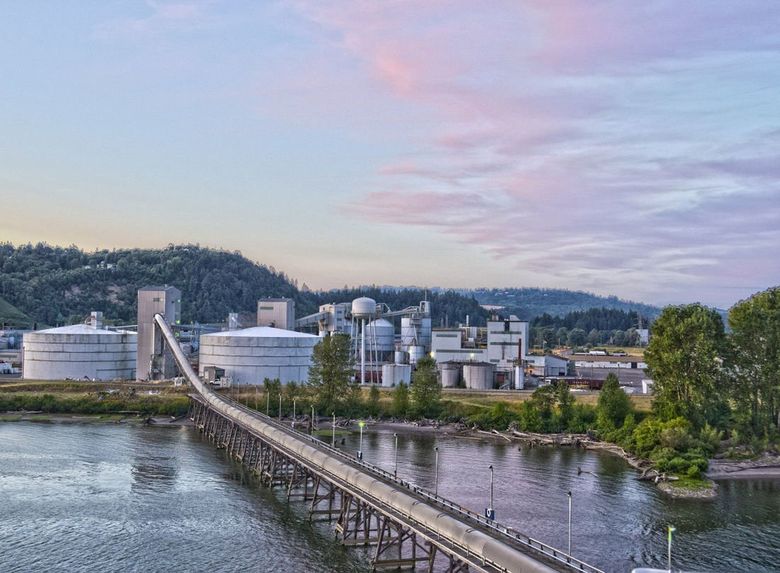From: Joyce Segal via Google News <joyceck10@gmail.com>
Date: Mon, Jun 28, 2021 at 8:09 AM
Subject: Joyce Segal shared 'Supreme Court gives victory to transgender student who sued to use bathroom' with you
To: <kimc0240@gmail.com>
|
Independent media Service Affiliate of the Access Institute of Research Media Project
|
VANCOUVER -- The record-breaking heat wave gripping British Columbia has claimed another title.
On Sunday, Lytton, B.C. became the first location in Canada ever to record a temperature over 45 degrees Celsius, registering at least 46.1 degrees, according to Environment Canada.
That's the hottest temperature ever recorded in the country, the weather agency said in a tweet Sunday. The previous record was set on July 5, 1937, in Saskatchewan
Earlier in the day, Environment and Climate Change Canada senior climatologist Dave Phillips told CTVNews.ca that it was likely that Canada's maximum temperature record would fall in the next few days.
Phillips mentioned Lytton and nearby Lillooet as likely candidates for the record. The high there was forecasted to be 45 on Sunday, 46 on Monday and 47 on Tuesday.
"It may not get to 47 C, but I think it's a done deal," Phillips said. "It's going to be the all-time Canadian record."
In its tweet, the weather agency said the 46.1 reading may not even be the hottest it got in Lytton on Sunday.
"The daytime maximum could be higher so stay tuned for the official recording," the agency said.
Lytton had already set a new local temperature record on Saturday, registering a high of 43.2 degrees. The previous record for the area on June 26 was 39.9, set in 2006.
That was one of 54 temperature records set in B.C. on Saturday, with more likely on the way on Sunday.
 The Millennium Bulk Terminals project, shown in this drawing, was proposed for Longview and would have exported up to 44 million metric tons annually of Western coal to Asia.... (Millennium Bulk Terminals)
The Millennium Bulk Terminals project, shown in this drawing, was proposed for Longview and would have exported up to 44 million metric tons annually of Western coal to Asia.... (Millennium Bulk Terminals)CHEYENNE, Wyo. — The U.S. Supreme Court decided Monday that it won't allow Wyoming and Montana to sue Washington state for denying a key permit to build an export dock that would have sent coal to Asia.
Justices Clarence Thomas and Samuel Alito voted in the minority in the ruling against letting the two states sue the third in a case that would have gone directly before the high court.
The two major coal mining states have sought to boost exports to prop up an industry in decline for a decade as U.S. utilities switch to gas-fired power and renewable energy.
The Washington state Department of Ecology in 2017 denied a permit for the export dock, saying the facility on the Columbia River would cause "irreparable and unavoidable" environmental harm.
Denying the permit violated the U.S. Constitution's prohibition against trade protectionism between states, the coal states argued in 2020.
Washington state officials were not trying to block Wyoming and Montana coal but acted because of "valid environmental concerns" about the dock, attorneys for the state argued in a court filing later that year.
In any event, the developer of the Millennium Bulk Terminal project went bankrupt and the project wouldn't proceed, U.S. Solicitor General Elizabeth Prelogar argued in May.
Washington Gov. Jay Inslee welcomed the Supreme Court decision, spokesperson Tara Lee said Monday.
"We are glad to today mark the end of a long chapter in the debate over coal export in Washington state," Lee said by email.
Republican Wyoming Gov. Mark Gordon in a statement Monday called the ruling "extremely frustrating."
"This case was never about a single permit or product. It was about the ability of one state to engage in lawful interstate commerce without the interference of another state," Gordon said.
Wyoming this year set aside $1 million to help Gordon's office pursue the lawsuit and potentially file others against states with policies leading to the early shutdown of Wyoming coal-fired power plants.
___
Biden is making a big pitch for this infrastructure project in part because we need it, of course, and because it is popular, but also because it signals a return to the sort of government both Democrats and Republicans embraced between 1945 and 1980. In that period after World War II, most Americans believed that the government had a role to play in regulating business, providing a basic social safety net, investing in infrastructure, and promoting civil rights. This shared understanding was known as the "liberal consensus."With the election of Ronald Reagan to the presidency in 1980, the Republican Party rejected that vision of the government, arguing that, as Reagan said, "government is not the solution to our problem; government is the problem." But while Reagan limited that statement with the words "in this present crisis," Republican leaders since the 1980s have worked to destroy the liberal consensus and take us back to the world of the 1920s, a world in which business leaders also ran the government.
|
|